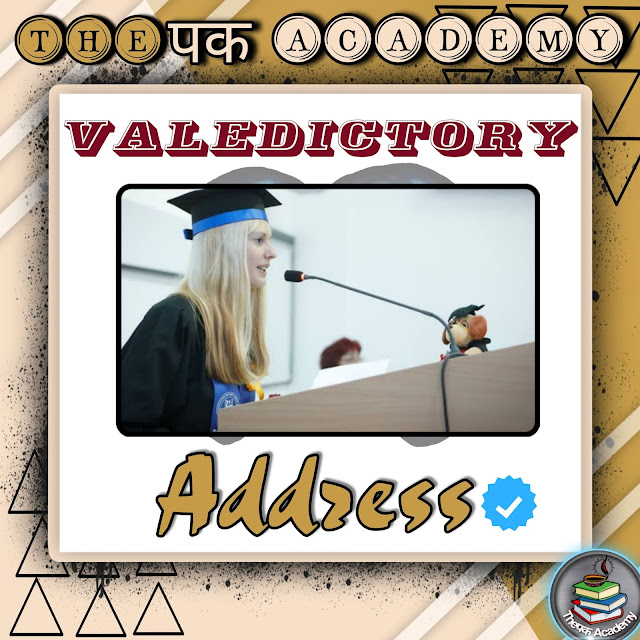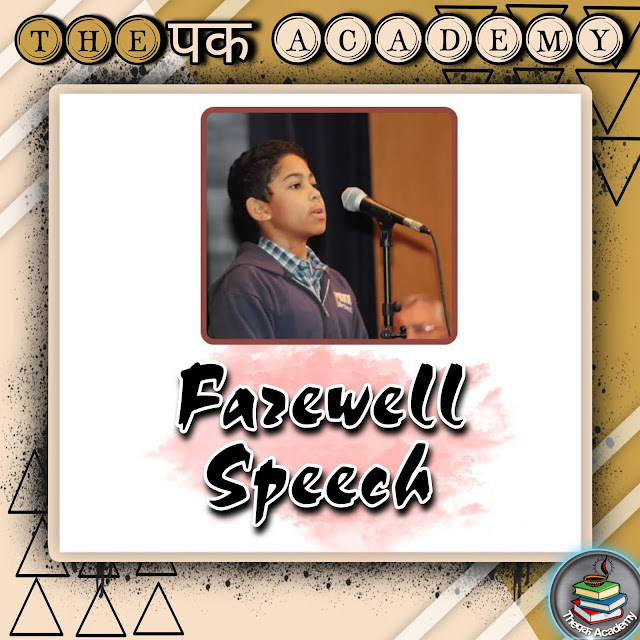Q.:- How many types of Public Speech?
Ans.:-
There are different types of speeches. Type depends on the purpose and occasion. Some of their types are as follows:
(1) Occasional Speech:-
This type of speech is planned and prepared according to the occasion. The speaker chooses the content keeping the occasion in mind. It is commonly presented on the formal
occasions and involves certain formalities. The examples of occasional speech include:
(a) Welcome Speech-
This is most common form of public speech that is delivered at almost all the formal gatherings where some guest speaker is invited. A person needs to welcome and introduce the speaker to the audience at the occasion. The speech delivered by the person is known as 'welcome speech' or 'introductory speech? The speaker introduces the guest speaker by referring to his/her full and formal name with title(s), like Ms., Mr., Dr., Prof., etc., that goes with his/her name. S/he also mentions the achievements, awards, distinctions, recognitions, etc., that are earned by the invited speaker.
(2) Valedictory Address:-
Valedictory means 'leave taking'. Introductory speech is delivered at the beginning of an event, whereas valedictory speech is delivered at the end of the event, seminar, workshop of conference. The speaker thanks not only the guest speaker(s), but also thanks the persons
who contributed to make the event possible and successful. The speaker uses a proper order to express the gratitude. S/he starts with the guest speaker(s), followed by the people in higher echelons, then the person who rendered real help to Organize the event, like mechanical and other support staff, and finally, the audience. S/he prepares a list and ensures that no one has been left out.
(3) Farewell Speech:-
Farewell is the act of departing politely. Students leave the school or college after the completion of their studies; people change their jobs, leave one organization and join
another. People are offered farewell when one is transferred, moves away from an organization or leaves after the completion of a project, a term, or an assignment. In all such eventualities, a farewell speech comes into play. The person is asked to say a few words
at this time. S/he should not criticize the organization's policies or people, even if s/he does not appreciate them, rather should thank the organization and people for their help and support.
(4) Thematic Speech:-
This type of speech is based on some theme. The main purpose of speech is to make audience aware of positive and negative sides of the theme. The Speaker collects information about the theme, prepares the draft, and present before the audience. Thematic speeches can be divided into the following categories:
(a) Motivational Speech-
This kind of speech is delivered to motivate the listeners. It is Interactive in nature. The Speaker tries to influence the audience to follow her/his line of thought. It can be delivered on social, educational or professional issues.
(i) Social Matters-
The speech on social matters can be delivered in order to motivate the listeners to participate in some social work(s).
(ii) Educational-
The speech on educational matter can be delivered to highlight specific issue or topic. It can be delivered before the students, scholars, academicians, or so.
(iii) Professional-
This kind of speech is delivered either by some professional, or to the professionals. It requires some subjects matter expert or professionally qualified person to deliver the speech.
(b) Informational Speech-
This kind of speech is based on a particular theme. The theme generally remains related to some event, issue, topic, etc. It's main purpose is to inform the audience about all the facets of the theme. The issue can be divided into the following categories:
- Social Issue
- Gender Issue
- Scientific Topic
- Technical Issue
- Social Menace
- Evil Practice
- Media Related Issue
Thanking you for read my blog 😁😁
Read More:-
Public Speech- Introduction
Public Speech- Preparation
Public Speech- Strategies
Communication- Introduction
Communication- Types
Effective Communication- Tips?
Interview- Introduction
Group Discussion- Introduction
Group Discussion- Characteristics
Group Discussion- Essential Requirements
Group Discussion- Process


















0 comments